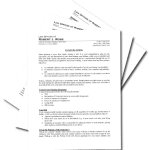Best Inheritance Law Lawyers in Illinois
Share your needs with us, get contacted by law firms.
Free. Takes 2 min.
Or refine your search by selecting a city:
List of the best lawyers in Illinois, United States
1. About Inheritance Law in Illinois, United States
Inheritance law in Illinois covers how a deceased person’s assets are distributed. It includes wills, intestate succession, probate proceedings, and the duties of personal representatives or executors. The core framework is set by the Illinois Probate Act and related statutes. Understanding who inherits, when probate is required, and how to handle debts matters for families and heirs in Illinois.
In Illinois, assets titled in the decedent's name typically pass through probate unless a valid transfer mechanism avoids probate. Common mechanisms include joint ownership with rights of survivorship, beneficiary designations on life insurance or retirement accounts, and certain small estate procedures. A clear estate plan can reduce court involvement and speed up asset transfer. A local attorney with experience in Inheritance Law can tailor strategies to your situation.
For many people, the goal is to ensure a fair and timely transfer to beneficiaries while protecting surviving spouses and minor children. Illinois law also addresses claims by creditors, family allowances, and homestead rights that can affect distributions. Consulting a solicitor early in the process helps prevent delays and disputes after death.
Source: Illinois General Assembly outlines the Probate Act as the primary statute governing wills, estates and intestate succession in Illinois.Illinois General Assembly - Probate Act
Key terms you may encounter include personal representative, executor, administratrix, intestate, devise, bequest, and beneficiary. Using precise Illinois terminology helps when communicating with clerks, courts, and opposing parties. An attorney can explain how these terms apply to your family and assets.
2. Why You May Need a Lawyer
Engaging a lawyer in Illinois is often essential to navigate probate, disputes, and planning. The scenarios below illustrate real-world circumstances where legal counsel adds value.
- You are named personal representative for an Illinois estate and must file a probate petition in a county court. You need help gathering assets, notifying creditors, and preparing inventories.
- You suspect a will is invalid due to lack of testamentary capacity, undue influence, or fraud. A lawyer can assess grounds for a contest and guide you through any court hearings.
- You are a surviving spouse seeking to preserve a homestead or to understand elective rights under Illinois law. An attorney can explain the share you may receive and the steps to secure it.
- You hold a disputed real property title that was owned by the decedent and fear title transfer delays. A solicitor can initiate or defend probate actions and coordinate with title companies.
- You are a creditor or claimant with a valid debt against the estate. A lawyer can file necessary proofs of claim and protect priority rights.
- You need to administer an estate that spans multiple counties or involves out-of-state assets. An attorney can coordinate with different courts and handle multi-jurisdictional issues.
- You want to minimize probate costs by exploring small estate procedures or alternate transfer methods. A focused legal plan can help you qualify and proceed efficiently.
Realistic expectations are important. Some Illinois probate matters resolve quickly if uncontested, while others with disputes or complex assets can extend for many months or years. An attorney can provide case-specific timelines and help manage deadlines set by the Probate Court.
3. Local Laws Overview
The following are two to three core laws and concepts that govern Inheritance Law in Illinois. These are widely cited in state practice and bar guidance.
- The Probate Act of 1975 (755 ILCS 5/) - This is the central statute controlling probate proceedings, appointment of executors or administrators, notice requirements, inventorying assets, paying debts, and distributing estate assets. It also addresses intestate succession and the forms of estate administration used in Illinois courts.
- Small Estate Provisions under the Probate Act - Illinois provides a streamlined process for transferring certain assets without full probate when the estate falls below specified thresholds or when assets can be transferred by affidavit or simplified procedures. This mechanism can speed transfers and reduce court involvement in appropriate cases.
- Trust and Estate Planning Frameworks in Illinois - Illinois law recognizes trusts and provides a framework for creation, administration, and settlement under the Illinois Uniform Trust Code and related provisions. This affects how property can pass outside probate through trusts, and how trustees manage assets for beneficiaries.
Recent practical context for Illinois residents includes the fact that the state does not levy a separate state inheritance tax, so beneficiaries generally rely on the federal estate tax framework for larger estates. Always verify current guidance with official sources, as tax laws and probate procedures can evolve. For official references, see the state judiciary and legislative resources below.
Source: The Illinois Probate Act governs wills, estates and intestate succession in Illinois courts.Illinois Courts - Official Site
Source: The Internal Revenue Service confirms federal estate tax considerations and notes that state inheritance taxes vary by state; Illinois has no ongoing state inheritance tax as of recent practice.IRS - Estate Tax Topic
4. Frequently Asked Questions
What is probate in Illinois?
Probate is the court process for validating a will or administering an intestate estate and distributing assets. It involves appointing a personal representative and paying debts.
How do I know if I need to probate an estate in Illinois?
If assets are titled solely in the decedent's name or require court authority to transfer, probate is usually needed. Some estates may qualify for small estate procedures to avoid full probate.
What is intestate succession in Illinois?
Intestate succession governs distribution when someone dies without a valid will. Illinois law outlines who inherits, typically balancing spouses, children, and other relatives.
How long does probate typically take in Illinois?
Duration varies with complexity and disputes. Uncontested probate often completes within several months, while contested cases or complex estates may take a year or longer.
Do I need an attorney to handle probate in Illinois?
While some filings can be done without counsel, a probate attorney helps ensure proper forms, deadlines, creditor notices, and asset transfers, reducing risk of costly mistakes.
What is a will contest and how is it handled in Illinois?
A will contest raises questions about validity, capacity, or undue influence. Courts assess evidence and determine whether the will should be admitted to probate.
Can a small estate avoid probate in Illinois?
Yes, if the estate meets specific thresholds and conditions under the Small Estate provisions. A solicitor can confirm eligibility and guide the affidavit process.
What happens to debts and creditor claims in Illinois probate?
Creditors are notified, debts are paid from estate assets, and any remaining assets are distributed to heirs or beneficiaries according to the will or intestate rules.
Is there a difference between an attorney and solicitor in Illinois?
In Illinois practice, lawyers are commonly called attorneys or solicitors in some contexts. Both refer to licensed legal professionals who represent clients in court and provide legal advice.
What assets pass through probate in Illinois?
Assets titled solely in the decedent's name, without beneficiary designations or joint ownership with survivorship, typically pass through probate. Assets with designated beneficiaries usually do not.
Do I need to notify heirs and creditors during probate?
Yes. Court rules require notice to heirs, beneficiaries, and known creditors, with a formal publication process in many cases.
Can trusts reduce probate in Illinois?
Yes. Assets held in trust generally pass outside probate to beneficiaries, providing potential time and cost savings and more control over distributions.
5. Additional Resources
- Illinois General Assembly - Official source for Illinois statutes, including the Probate Act and related laws. This site explains the statutory framework for wills, intestate succession, and probate in Illinois. https://www.ilga.gov/legislation/
- Illinois Courts - State judiciary resources on probate proceedings, procedures, and forms. Useful for understanding how to initiate probate and navigate the court system. https://www.illinoiscourts.gov/
- Internal Revenue Service - Federal guidance on estate taxes, filing requirements, and the interaction between state probate and federal tax law. https://www.irs.gov/
6. Next Steps
- Gather key documents within 1-2 weeks: death certificate, will or trust documents, asset list, and debt information.
- Identify potential heirs, beneficiaries, and the appropriate personal representative or executor in Illinois.
- Consult a local inheritance law attorney to assess whether probate or small estate procedures are required or advantageous.
- Determine if any assets can pass outside probate via joint ownership, beneficiary designations, or trusts, to reduce court involvement.
- File the appropriate probate petition or small estate affidavit in the correct Illinois county court, and prepare the inventory and notices required by law.
- Notify creditors, collect and value assets, pay debts and taxes, and distribute remaining assets to beneficiaries as directed by will or intestate law.
- Review ongoing responsibilities, such as filing final tax returns and closing the estate with the court, and seek counsel if disputes arise or deadlines are missed.
Lawzana helps you find the best lawyers and law firms in Illinois through a curated and pre-screened list of qualified legal professionals. Our platform offers rankings and detailed profiles of attorneys and law firms, allowing you to compare based on practice areas, including Inheritance Law, experience, and client feedback.
Each profile includes a description of the firm's areas of practice, client reviews, team members and partners, year of establishment, spoken languages, office locations, contact information, social media presence, and any published articles or resources. Most firms on our platform speak English and are experienced in both local and international legal matters.
Get a quote from top-rated law firms in Illinois, United States — quickly, securely, and without unnecessary hassle.
Disclaimer:
The information provided on this page is for general informational purposes only and does not constitute legal advice. While we strive to ensure the accuracy and relevance of the content, legal information may change over time, and interpretations of the law can vary. You should always consult with a qualified legal professional for advice specific to your situation.
We disclaim all liability for actions taken or not taken based on the content of this page. If you believe any information is incorrect or outdated, please contact us, and we will review and update it where appropriate.
Browse inheritance law law firms by city in Illinois
Refine your search by selecting a city.
















